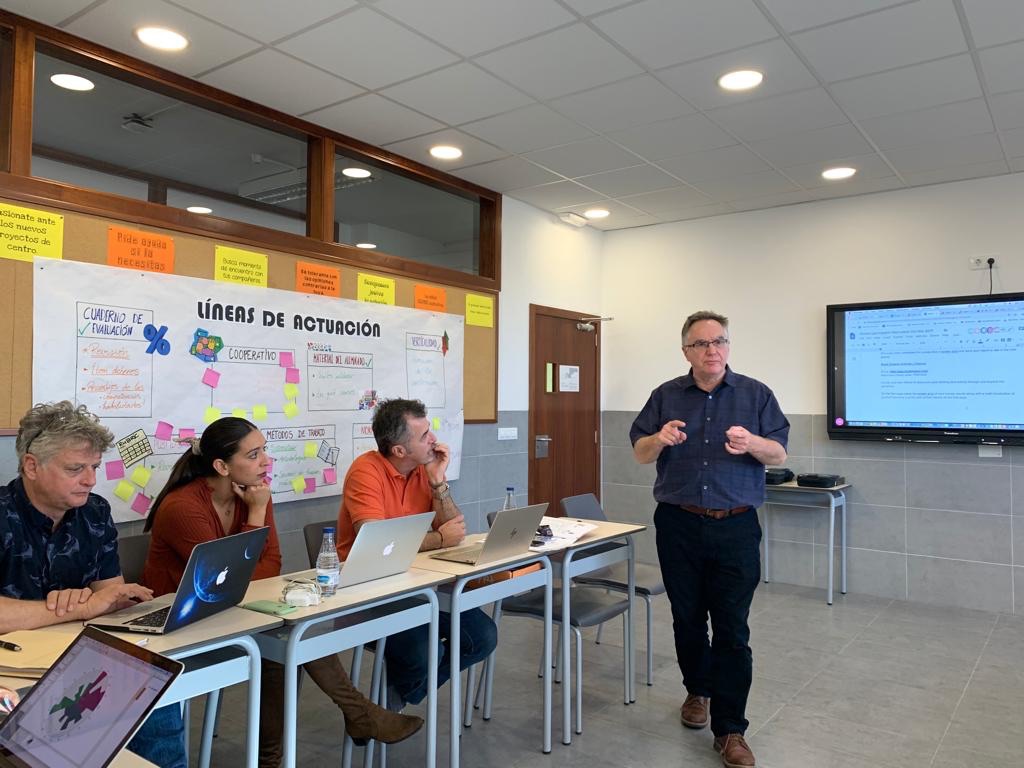
Topic(s) addressed
The purpose of the project was to develop teachers’ expertise in mobile learning towards supporting formative assessments and overall student progress. In this regard, hands-on activities allowed teachers to explore the potential of guided learning through the use of digital devices outside the classroom, while learning about (and working with) mobile learning tools in their day-to-day teaching activities.
Target groups
Project participants were from Norway, Spain, and Germany, and participant groups consisted of in-service teachers, students, and teachers, teacher-trainers and education specialists. Approximately 100 Norwegian students were involved in case studies/student activities in 4 subjects (Spanish, English, Chemistry and Natural Sciences), with about 40 in-service teachers and 5 staff members from the school’s management body having attended the LTT mobile learning workshop. In addition, a workshop with teacher-trainers was also carried out at the nearby University College (HVL). Moreover, 400 Spanish participants, with the partner school having included 240 secondary students, were involved in case study activities across different subjects, with 72 in-service teachers in LTT Workshops, and 63 teaching staff in a mobile learning training workshop. Finally, 30 German students of English were involved in case studies, with 20 in-service teachers from the school district having participated in the LTT workshop at Tübingen.
Methodologies
Participating pupils and teachers came from a number of diverse disciplines (e.g. Science, Spanish, and English). The MOLTAM project was itself based on a previous EU-funded project (MTTEP), and was followed by another EU-funded project, EMOL. The use of iPac as a pedagogical framework was to provide teachers with diagnostic feedback on mobile learning activities, and levels of authenticity, personalisation, collaboration, and other such considerations. Moreover, project partners not only established a common framework for case studies and formative assessment by further developing iPac, they also exchanged good practices, implemented case studies, involved pupils, and developed in-service training methods. Mobile devices (e.g. iPad and mobile phones) were used in teaching sessions, coupled with hands-on activities that allowed teachers to explore the potential of guided learning using digital devices outside the classroom environment.
Impact
Improved confidence among students in the use of digital tools and the use of foreign language, changes in the thinking and practices of partner teachers with regard to the use of mobile technology and formative assessments, and enhanced understanding among teachers on the use of mobile devices in teaching, and higher-level ICT-skills. Changes in teaching methods were another outcome – an example of this would be a comment from a Metis science tutor: “In relation to our own practice, the project has fundamentally changed the way teaching is carried out. Teaching was revised in order to increase pupil reflection through mobile learning activities, which has helped students present their work through different media, increasing engagement and metacognitive skills, while working with mobile tools.”
- Reference
- 2017-1-NO01-KA219-034174
- Project locations
- Norway
- Project category
- Secondary education
- Project year
- 2021
Stakeholders
Participants
Colegio Santa Maria Alborada
- Address
- Spain
Wildermuth Gymnasium
- Address
- Germany

